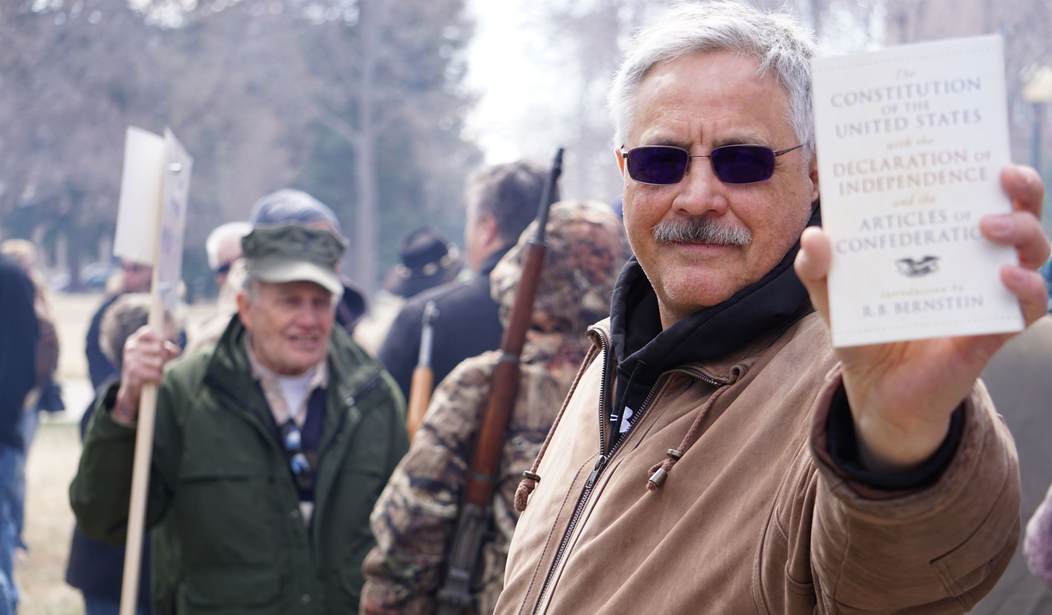MADISON — The Wisconsin Supreme Court’s order temporarily suspending civil and criminal jury trials amid the COVID-19 pandemic came with a powerful dissent from Justice Rebecca Bradley.
But the dissenting opinion, signed onto by Justice Daniel Kelly, goes beyond concern about suspending a critical right of the accused and to the heart of the civil liberties that make this a more perfect union — even in times of crisis.
Bradley notes that the court in its order suspends the constitutional rights of citizens, citing the exigency of a public health emergency.
“The Constitution does not countenance such an infringement,” the justice writes, citing a 1934 ruling that demands, “Emergency does not create power.”
“Emergency does not increase granted power or remove or diminish the restrictions imposed upon power granted or reserved. The Constitution was adopted in a period of grave emergency. Its grants of power to the federal government and its limitations of the power of the States were determined in the light of emergency, and they are not altered by emergency,” the ruling states.
The Sixth Amendment to the U.S. Constitution underscores the rights of the accused to enjoy a speedy trial, yet Wisconsin’s highest court insists a public health emergency justifies a blanket 60-day suspension of this vital right, Bradley asserts in her dissent. If this is true, the justice argues, then many other constitutional rights are subject to the same suspensions.
Recommended
What of the free exercise of religion? The freedom of the press? The right of the people to peaceably assemble? The right of the people to keep and bear arms? Just to name a few.
Some rights already have been among the opening casualties of the government’s actions to combat the pandemic. The right to congregate in one’s place of worship was wiped out in Gov. Tony Evers’ orders limiting contact and shutting down centers of faith. As was the right to peaceably assemble — at least with more than nine people, if they make sure to be six feet apart. As of today, the governor’s “shelter-at-home” order will limit contact even further.
Governments must do what it can in the name of public safety, but those efforts cannot include ignoring or violating the Constitution.
“Informed by the lessons of history, the Constitution was established to safeguard the rights of the people even under the most exigent circumstances,” Bradley writes.
She quotes from the post-Civil War ruling, Ex parte Milligan that found unconstitutional the practice of citizens being tried in military courts when civilian courts were still operating.
The framers “foresaw that troublous times would arise, when rulers and people would become restive under restraint, and seek by sharp and decisive measures to accomplish ends deemed just and proper; and that the principles of constitutional liberty would be in peril, unless established by irrepealable law. The history of the world had taught them that what was done in the past might be attempted in the future.”
“The Constitution of the United States is a law for rulers and people, equally in war and in peace, and covers with the shield of its protection all classes of men, at all times, and under all circumstances,” the ruling declares.
As Bradley notes, nothing in the Constitution permits the judiciary to limit “the fundamental rights under the Sixth Amendment.” In fact, there is only one instance in the Constitution where the government is expressly permitted to suspend a fundamental right: “The Privilege of the Writ of Habeas Corpus shall not be suspended, unless when in Cases of Rebellion or Invasion the public Safety may require it.”
The justice asserts the Supreme Court’s order not only overrides the U.S. Constitution, it flouts Wisconsin’s Constitution, which mandates: “In all criminal prosecutions, the accused shall enjoy the right . . . to a speedy public trial[.]”
“While utterly ignoring the supreme law of the land, the court expressly refuses to follow statutory law,” Bradley writes.
Finally, Bradley quotes another powerful dissent, that of U.S. Supreme Court Justice Thurgood Marshall in 1989’s Skinner v. Railway Labor Executives’ Association.
“History teaches that grave threats to liberty often come in times of urgency, when constitutional rights seem too extravagant to endure . . . when we allow fundamental freedoms to be sacrificed in the name of real or perceived exigency, we invariably come to regret it,” Marshall wrote.
Bradley concluded, “Justifying the suspension of the people’s constitutionally guaranteed rights based on a public health emergency nullifies our Constitution.”

























Join the conversation as a VIP Member